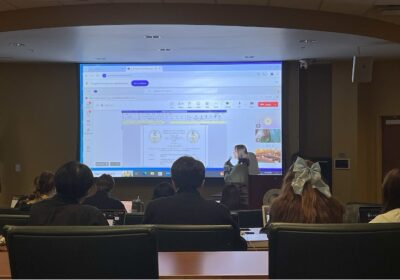USF partnership will train Tampa residents in environmental health and safety

The novel coronavirus has afflicted job markets all over the nation, and the Tampa area is no exception. A new partnership between USF and the Corporation to Develop Communities of Tampa intends on bringing some jobs back out of the shadows.
The Center for Brownfields Research and Redevelopment within USF’s Department of Anthropology received a $200,000 grant from the Environmental Protection Agency (EPA) to start an “environmental workforce and job training program” to train 60 residents of east Tampa to develop skills that will prepare them for careers in environmental health and safety.
Trainees will experience work in a wide variety of skills intended to clean up what are known as “brownfields,” an area of property or redevelopment that may be deemed hazardous due to the possibility of a harmful substance, pollutant or contaminant, according to the EPA.
Part of the curriculum will include tasks like learning how to remediate lead-based paint or dealing with toxic substances like asbestos that develop in older homes and facilities, according to Christian Wells, director of the Center for Brownfields Research and Redevelopment.
Participants of the program will be recruited by the Corporation to Develop Communities of Tampa and start in February. The five-week program will be Monday-Friday from 9 a.m to 5 p.m.
“There’s 150 hours of training in different environmental health and safety protocols. Anything from handling hazardous waste to all kinds of on the job health and safety training,” said Wells. “There’s quite a bit.”
Half of the grant will go toward teaching the course, including handouts, books or booklets required for the curriculum. It will also cover the cost of paying the program’s instructors, who will come from USF’s Occupational Safety And Health Administration Training Institute.
The other $100,000 of the grant will be invested in resources from the Corporation to Develop Communities of Tampa to help with “recruitment, support and retention” of trainees and also play a part in their job search after completing the program.
“With the certifications from this program, they can do everything from those environmental remediation jobs to a lot of types of construction work,” said Wells. “A lot of work in warehouses, any kind of business, any kind of company that produces hazardous waste, they’ll be able to get a job at because they’ll know how to handle that hazardous waste in a safe way.”
While there are no requirements to apply for the program aside from having a high school diploma or GED, the Center for Brownfields Research and Redevelopment and Corporation to Develop Communities of Tampa are looking to reach a younger population of people 18-24 years old who are having difficulty finding jobs.
Wells expects that those who participate in the program will be able to find jobs by next year.
“These aren’t just like low-level service jobs. These are, you know, real careers that they can stick with forever — full-time jobs,” said Wells. “Hearing from past participants of this program in other states, it just really makes you so excited.
“To be able to help someone get a job and … a full-time career, it really changes their life.”






